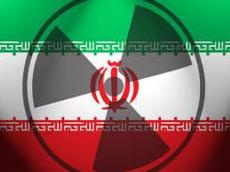|
|
TODAY.AZ / World news
Experts expect prolongation of talks for Iran's nuclear activity
25 February 2013 [19:10] - TODAY.AZ
 The meeting between Iran and the "Group of Six" on nuclear program scheduled for February 26 in Almaty will mark another round of negotiations between the parties on this issue that will be continued in future, experts say.
The meeting between Iran and the "Group of Six" on nuclear program scheduled for February 26 in Almaty will mark another round of negotiations between the parties on this issue that will be continued in future, experts say."Negotiations on Iran's nuclear program will continue. The negotiation process will be conducted, at least until the end of this year," a senior researcher at the Institute of Oriental Studies, Professor Vladimir Sazhin said during a video conference Moscow - Astana - Yerevan on "The Iranian factor in the context of regional security."
According to him, great results shouldn't be expected from this meeting.
"Personally, I am not optimistic about tomorrow's meeting in Almaty, as the positions are too contradictory ... Iranians will not agree on the plant's closure ... Iran recently conducted a PR campaign and announced the discovery of huge gold ore reserves in the country, as well as the locations of 16 future nuclear power plants. Recently, Iran announced that it has started upgrading its centrifuges at Natanz, and the outdated first generation centrifuges will be replaced by a new generation. If the replacement occurs, the process of enriching uranium will increased by three times. This displeases the group of six; none of its members are optimistic about tomorrow's meeting in Almaty either," Sazhin said.
According to him, the most important issue today is the lack of trust between Iran and the "Group of Six".
"However, the resolution of the Iranian problem through military means may lead to unforeseen political and other consequences, especially in such a volatile region as the Middle East," Sazhin said.
At the same time, according to the professor of the National Defense University of Kazakhstan Georgiy Dubovtsev, there is some progress in talks of Iran and the "Group of Six".
"I do not agree that tomorrow's meeting will yield no results. During the past years we have observed the dynamics of both parties. If previously, Iran and the U.S. had dramatically irreconcilable positions, now Iran and the six countries get round the table, which is a positive thing," Dubovtsev said.
According to him, it is important that the negotiations are continued - in that he sees the purpose of tomorrow's meeting in Almaty.
In case of war, the results may be disastrous not only for the region, but for the entire world, Dubovtsev says.
"This will lead to destabilization, not only in the Middle East, but other regions as well, and the war could be a serious argument for Iran to develop its nuclear program and nuclear weapons," Dubovtsev said.
According to him, Iran may fight back with its missile launchers and provoke active counter-measures, including the cessation of oil exports and attacks on oil tankers coming from Arab countries.
According to the director of the Institute for Caspian Cooperation Sergei Mikheyev, a war with Iran will not occur in the next few years.
"If we assume that there is a war, it will be reflected in the first place, except for the destruction of Iran itself, in the Caspian region, as this will impact investments in oil and gas projects in the Caspian region," Mikheyev said.
In addition, he said, Western attempts to bring order to Iraq and Afghanistan have only led to the deterioration of the situation and impacted the neighboring countries.
/Trend/
URL: http://www.today.az/news/regions/119563.html
 Print version
Print version
Views: 1039
Connect with us. Get latest news and updates.
See Also
- 27 December 2024 [23:30]
Chinese Foreign Minister may visit Japan for first time since 2020 - 27 December 2024 [22:36]
Taiwan records approach of five Chinese planes and five ships - 27 December 2024 [21:28]
Poland develops its own ballistic missile - 27 December 2024 [20:47]
Another impeachment decision in South Korean Parliament - 27 December 2024 [19:34]
PLA uses drones and 3D printing to service weapons - 27 December 2024 [16:53]
European Commission to allocate €12.9m grant to Armenia for nuclear safety - 27 December 2024 [13:08]
Kazakhstan airline suspends flights to Russia due to safety concerns - 27 December 2024 [08:00]
New wave of purges in the army begin in China - 26 December 2024 [23:30]
Ankara invests in technologies for transitioning to carbon-neutral economic structure - 26 December 2024 [21:43]
South Korea's opposition send motion to parliament to impeach country's acting president
Most Popular
 Multiple-firing weapons: how India fooled Armenia
Multiple-firing weapons: how India fooled Armenia
 BHOS & Kazakhstan's Safi Utebayev Atyrau Oil and Gas University sign protocol
BHOS & Kazakhstan's Safi Utebayev Atyrau Oil and Gas University sign protocol
 Immoral silence: our grief and the true face of European politicians
Immoral silence: our grief and the true face of European politicians
 Turkish President Erdogan offers condolences following AZAL plane crash
Turkish President Erdogan offers condolences following AZAL plane crash
 Emotional homecoming for IDPs after 31-Year Separation
Emotional homecoming for IDPs after 31-Year Separation
 Pashinyan was "struck down" by a new type of coronavirus
Pashinyan was "struck down" by a new type of coronavirus
 Azerbaijan observes National Day of Mourning for plane crash victims
Azerbaijan observes National Day of Mourning for plane crash victims
